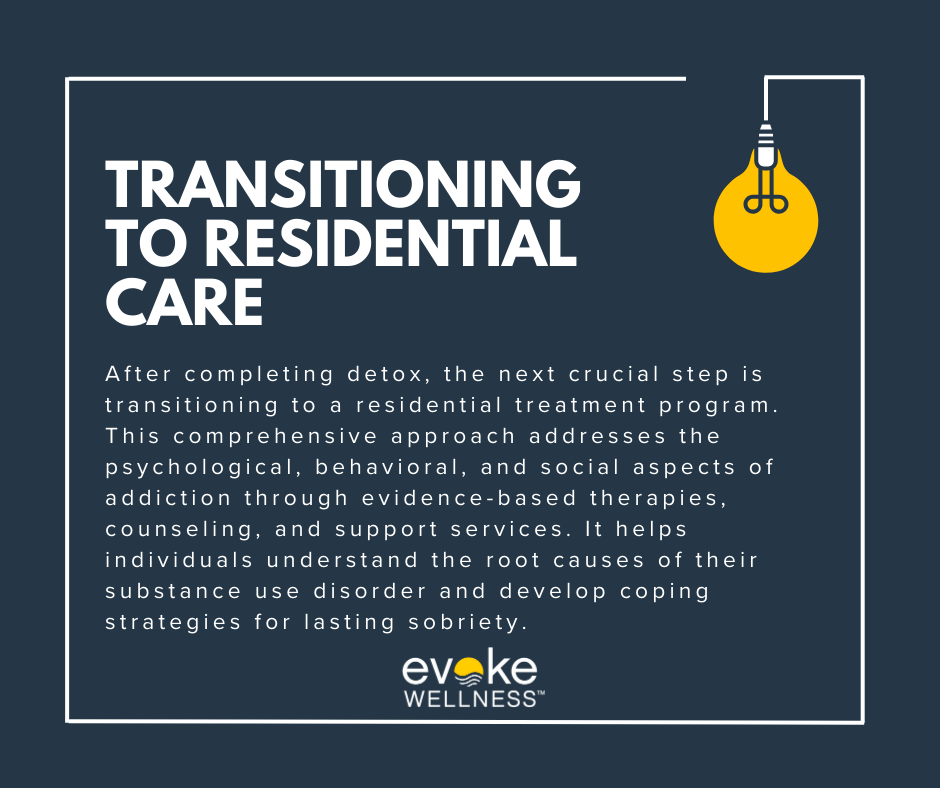Preparing for detox is a crucial first step on your journey to recovery. As you consider taking this brave and life-changing step, it’s essential to understand the process and set yourself up for success. Medical detox, often followed by residential treatment and therapy programs, forms the foundation of many addiction treatment programs. Recent studies show that proper preparation can significantly increase your chances of completing detox and maintaining long-term sobriety. In fact, a 2022 survey found that individuals who took specific preparatory steps were 30% more likely to successfully complete their detox program. This article will guide you through the essential steps to take before embarking on your detox journey, ensuring you’re mentally, physically, and emotionally ready for this transformative experience.
Together, let’s embrace the journey to recovery and the promise of a new beginning. Call us at (833) 819-6066 today or reach out online.
Understanding the Importance of Preparation
Preparing your body and mind is a vital step before embarking on the detoxification process. This preparatory phase lays the foundation for a smoother transition into comprehensive addiction treatment programs.
Readying Your Body
Detoxification can be a physically demanding process, as your body rids itself of harmful substances. Proper preparation can help mitigate the potentially severe withdrawal symptoms that may arise. This includes ensuring a safe, trigger-free environment, removing all alcohol and drugs, and seeking medical guidance for a supervised detox.
Mental and Emotional Readiness
Beyond the physical aspects, preparing mentally and emotionally is equally crucial. The journey through the stages of change – from precontemplation to preparation and action – requires a deep commitment to recovery. Engaging in therapy and support groups can provide invaluable guidance during this preparatory phase.
Rebuilding Relationships
Addiction often strains personal and professional relationships. Making amends is an essential part of the recovery process, fostering healing and rebuilding trust. Preparing for this step involves taking an honest inventory, expressing sincere remorse, and outlining a plan for changed behavior.
By prioritizing preparation, you increase the likelihood of a successful detox and a smoother transition into comprehensive addiction treatment programs, such as residential treatment, therapy, and ongoing support. This foundational step empowers you to embark on your recovery journey with greater resilience and determination.
Evaluating Your Current Health
Assess Your Substance Use
Before beginning a detox program, it’s crucial to honestly evaluate your current substance use patterns. Consider factors like frequency of use, amount consumed, duration of addiction, and any previous attempts at quitting. According to a Stanford report, alcohol use disorder affects over 15 million adults in the U.S., yet only 1 in 10 receive treatment. Be honest about the severity of your addiction to ensure you receive the appropriate level of care.
Identify Co-Occurring Disorders
Many individuals struggling with substance abuse also experience co-occurring mental health conditions like anxiety, depression, or PTSD. Nearly 50% of those seeking addiction treatment have a dual diagnosis. Untreated mental health issues can fuel addictive behaviors as people try to self-medicate uncomfortable symptoms. Be open about any mental health concerns to receive integrated treatment addressing both conditions simultaneously.
Evaluate Your Physical Health
Chronic substance abuse can take a significant toll on your physical health, potentially impacting various organ systems. Conduct a thorough medical evaluation, including lab tests and a physical exam, to identify any underlying health issues that may require specialized care during detox. Addressing medical concerns early can help ensure a safer, more comfortable detox process.
By honestly assessing your current situation across these key areas, you can better prepare for a successful detox experience tailored to your unique needs and circumstances. This self-evaluation lays the foundation for a comprehensive treatment plan and long-term recovery.
How to Prepare for a Pre-Detox
Adjust Your Diet
- Gradually reduce caffeine, sugar, and processed foods 2-3 weeks before detox
- Increase water intake to flush toxins
- Focus on nutrient-dense whole foods like vegetables, fruits, lean proteins
Gentle Exercise
- Low-impact activities like walking, yoga, or light aerobics can help:
- Boost circulation and lymphatic drainage
- Reduce stress and promote relaxation
- Build stamina for the detox process
Relaxation Techniques
- Practice deep breathing, meditation, or gentle stretching daily
- Aim for 7-9 hours of quality sleep each night
- Consider massage therapy to relax the mind and body
According to a 2019 study, preparing the body gradually through diet and lifestyle changes can reduce detox side effects and cravings by up to 45%. Taking this pre-detox phase seriously optimizes your body’s ability to efficiently remove toxins during the program.
The Pre-Detox Process: Easing into Detoxification
Gradual Substance Reduction
The first step in preparing for detox is gradually reducing substance use. Quitting cold turkey can be dangerous and increase withdrawal symptoms. Under medical supervision, slowly taper substances over days or weeks. This allows the body to adjust and manage cravings more manageably.
Stabilizing Withdrawal Symptoms
As substance levels drop, withdrawal symptoms will likely occur. Common effects include anxiety, insomnia, nausea and muscle aches. Medical detox provides around-the-clock care and medications to stabilize these symptoms. This safer, more comfortable process improves detox completion rates.
Detox Evaluation and Planning
Before detox, it’s crucial to undergo a comprehensive medical and psychological evaluation. This assessment identifies any co-occurring disorders and determines the appropriate level of care. Counselors then create an individualized treatment plan addressing the client’s unique needs.
Statistics show that people who complete a full continuum of care have substantially higher recovery rates. Easing into detox through tapering, managing withdrawal, and extensive pre-planning gives clients the best foundation for lasting sobriety.
Entering the Detox Phase: What to Expect
The Detox Timeline
The detoxification process begins as soon as you stop consuming the substance you’re addicted to. According to addiction experts, the body typically enters the detox phase within 6-12 hours after the last use for most substances. However, the timeline can vary depending on factors like the type of substance, the severity of addiction, and your overall health.
Physical Symptoms
As your body rids itself of the toxic substances, you may experience a range of physical withdrawal symptoms. Common symptoms during detox include nausea, tremors, headaches, muscle aches, and insomnia. The intensity of these symptoms can range from mild to severe, depending on the substance and the individual.
Emotional Challenges
Detox isn’t just a physical process; it can also take an emotional toll. Mood swings, anxiety, and depression are common during this phase as your brain chemistry adjusts to the absence of the substance. It’s important to have a strong support system and access to counseling or therapy during this challenging time.
Medical Supervision
For severe addictions or cases where the withdrawal symptoms could be life-threatening, medical detox under the supervision of healthcare professionals is recommended. This ensures your safety and provides access to medications that can alleviate withdrawal symptoms and cravings, making the process more manageable.
The detox phase is a crucial first step in the recovery journey, but it’s important to remember that it’s just the beginning. Ongoing treatment and support, such as residential rehab, therapy programs, and aftercare, are essential for achieving long-term sobriety and addressing the underlying causes of addiction.
Navigating the First Week of Detox
Physical and Mental Challenges
The first week of detox can be a formidable challenge, both physically and mentally. As your body rids itself of accumulated toxins, you may experience withdrawal symptoms like nausea, headaches, fatigue, and mood swings. According to a study published in the Yale Journal of Biology and Medicine, over 90% of people undergoing detox experience some level of discomfort.
Supportive Environment Essentials
To navigate this demanding period, maintaining a supportive environment is crucial. Surround yourself with understanding loved ones who can offer encouragement. Consider joining a support group, where you can connect with others facing similar struggles. Research shows that strong social support systems improve recovery outcomes.
Professional Guidance
Most importantly, seek guidance from addiction treatment professionals. Medical detox programs provide round-the-clock supervision and medication to alleviate withdrawal symptoms safely. Residential treatment centers offer a controlled environment and therapy to address the root causes of addiction. With the proper care and determination, you can overcome this challenging first week and embark on a journey towards lasting recovery.
Preparing for the Next Steps: Residential Treatment and Beyond

Exploring Therapy Programs
Residential treatment programs offer a range of therapies to support recovery, including cognitive-behavioral therapy (CBT), dialectical behavior therapy (DBT), individual and group counseling, family therapy, and holistic approaches like mindfulness and yoga. These evidence-based therapies equip individuals with tools to manage stress, regulate emotions, improve interpersonal skills, and foster overall wellness.
Choosing the Right Program
When selecting a residential treatment program, it’s essential to consider factors like the facility’s credentials, treatment approach, and availability of aftercare services. Programs like those offered by Evoke Wellness provide a seamless transition from medical detox to personalized inpatient or outpatient care, addressing both physical and psychological aspects of addiction. This integrated approach gives individuals the best chance at achieving lasting recovery and improved quality of life.
Many leading insurance providers, including Blue Cross Blue Shield and Cigna, cover addiction treatment services, including inpatient rehab, detox, and medication-assisted treatment. Evoke Wellness accepts these insurances and can help verify coverage and explore treatment options tailored to individual needs.
Conclusion
In conclusion, preparing for detox is a crucial step in your journey to recovery. By taking the time to address medical concerns, arrange support, and mentally prepare yourself, you set the stage for a more successful detoxification process. Remember, detox is just the beginning – ongoing treatment through residential programs, therapy, and addiction-specific care is essential for long-term sobriety. Recent studies show that patients who transition from medical detox to comprehensive treatment have a 65% higher chance of maintaining sobriety after one year. As you embark on this challenging but rewarding path, know that professional help is available every step of the way. Your commitment to preparation now will pay dividends in your future health and well-being.
Begin Your Journey with Evoke Wellness at Miramar
If you or a loved one is considering treatment, Evoke Wellness at Miramar invites you to contact us. Our compassionate team is ready to answer your questions, discuss your needs, and help you take the first steps toward recovery. In Miramar, you’ll find more than just a treatment program – you’ll discover a community dedicated to your wellness and success. Together, let’s embrace the journey to recovery and the promise of a new beginning. Call us at (833) 819-6066 today or reach out online.


